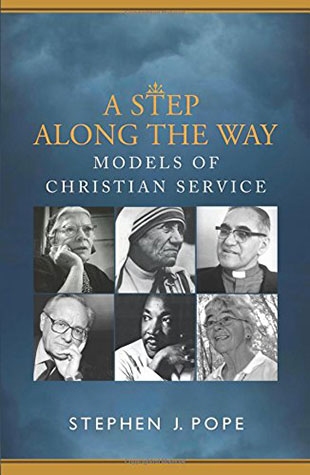"Serving others in very demanding ways for long periods of time without sufficient support can lead to a state of personal debilitation that undermines our ability to be compassionate. It affects nurses, first responders, therapists, pastors, and teachers, and many other people as well. Burnout interferes with sleep, disrupts concentration, saps energy, and compromises mental health – all of which can make us feel disillusioned, mistrustful, discouraged, and cynical. So striving to be compassionate in the wrong way can undermine one's long-term ability to be compassionate.
"Burnout is often occasioned by mismanaged and impersonal bureaucracies. Its long-term, systemic solution requires reform of dysfunctional institutions. Yet people threatened by burnout can't just wait for the enactment of necessary organizational reforms. They need to make choices that will advance their own physical, mental, and spiritual well-being: proper nutrition, exercise, sleep, spending time with supportive friends, and participating in the activities of healthy communities.
"Christianity provides both spiritual and social resources for helping us prevent or recover from burnout. First of all, Christian faith resists unfair expectations some people put on themselves to do all the good they can possibly do every day of the week. The gospel reminds us that there is only one Savior. As [Gregory] Boyle put it [in Tattoos on the Heart], 'none of us can save anybody.'
"Second, active participation in a vital worship community helps us to celebrate the goodness of life and to cultivate an attitude of gratitude for our blessings and gifts. Social psychologists have discovered that people who are more thankful tend to have better mental and physical health, stronger relationships, and greater self-esteem than people who are less grateful. They also tend to be more sociable, less materialistic, more resilient, and more altruistic. Active participation in a religious community also connects us to a social network that can provide support, guidance, and encouragement.
"Third, the Christian ethic of love includes not only God and our neighbor, but also ourselves. Indeed we have a duty to take care of ourselves. The command, 'Love your neighbor as yourself' (Lk 10:27) presupposes healthy and virtuous self-love. We ought to love our neighbor as we love ourselves, but only if we love ourselves the right way. Some Christians brand all forms of self-love as sinful. They are right that selfishness in all its forms – arrogant pride, self-aggrandizement, and willfulness, for example – is harmful to oneself as well as to others. But proper self-love is good for both us and our neighbor. The more we love ourselves in response to God's love for us, the more it will be right. The more healthy and rightly formed our love for God and our love for ourselves, the more healthy and rightly formed will be our love of our neighbor. Whereas selfish love makes true friendship impossible because it uses the neighbor as nothing but an instrument for the self, proper self-love reaches out to the neighbor in true good will and mutuality.
"One of the worst kinds of harm is done to people when they are treated in ways that make them feel degraded, shameful, and humiliated. As Boyle points out, 'The principal suffering of the poor is not that they can't pay their rent on time,' but rather a 'toxic sense of shame – a global sense of failure of the whole self.' Distorted versions of Christian piety have made people feel they have acted in ways that put them permanently and irreversibly outside of God's love. Advocates of this kind of distorted theology do not see that Christianity lacking forgiveness is not authentic Christianity.
"We encourage burnout when we view the gospel as demanding unending generosity with no acknowledgment of our finitude. The virtue of practical wisdom knows where to draw the line between healthy generosity and neurotic, compulsive altruism. Ultimately, we have to trust in divine providence rather than get trapped into assuming that everything is up to us.
"Pope Saint John XXIII displayed the serenity that comes with deep faith. At the end of the day he was able to pray: 'I've done the best I could in your service this day, O Lord. I'm going to bed. It's your church. Take care of it!' "
